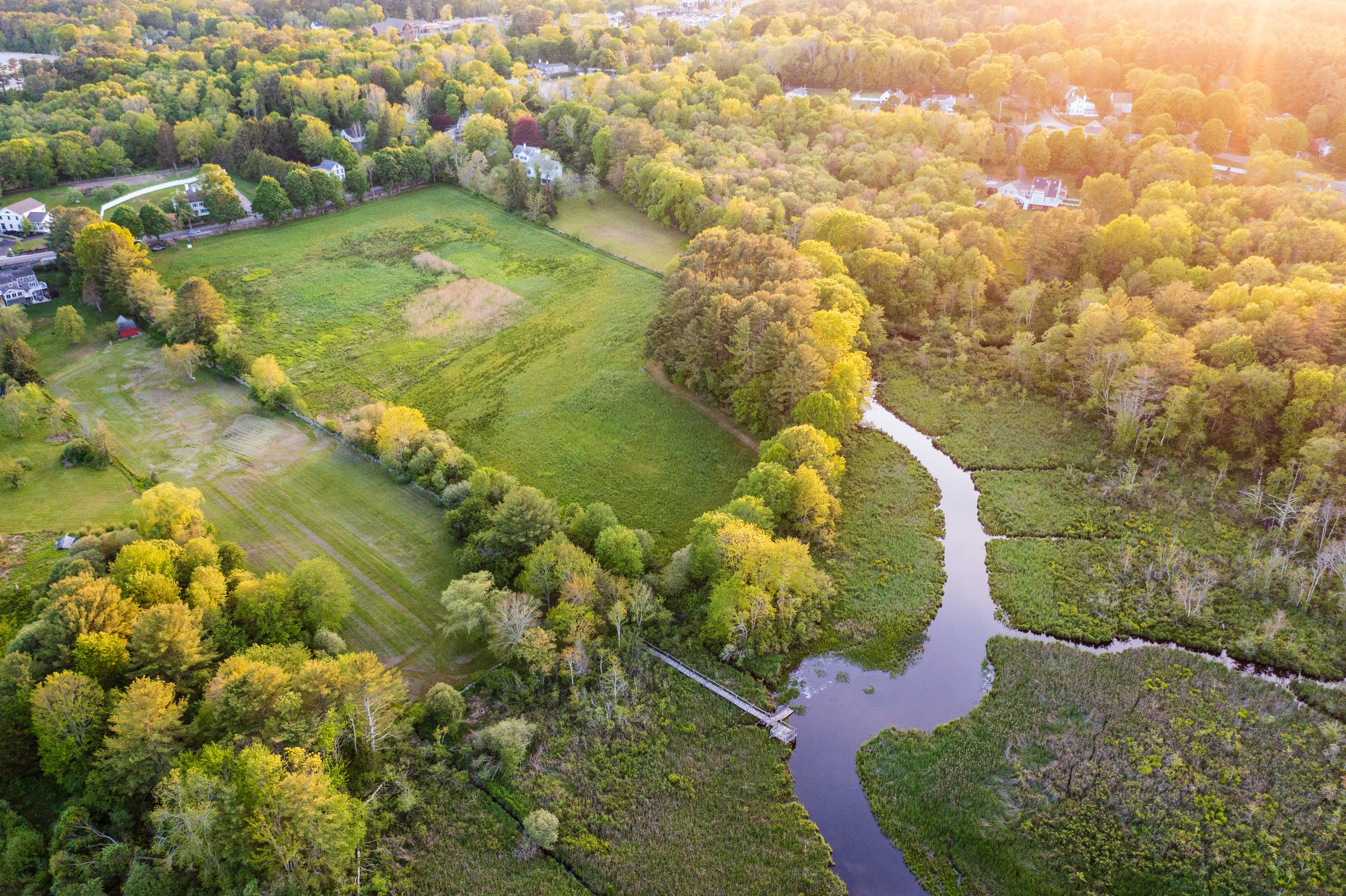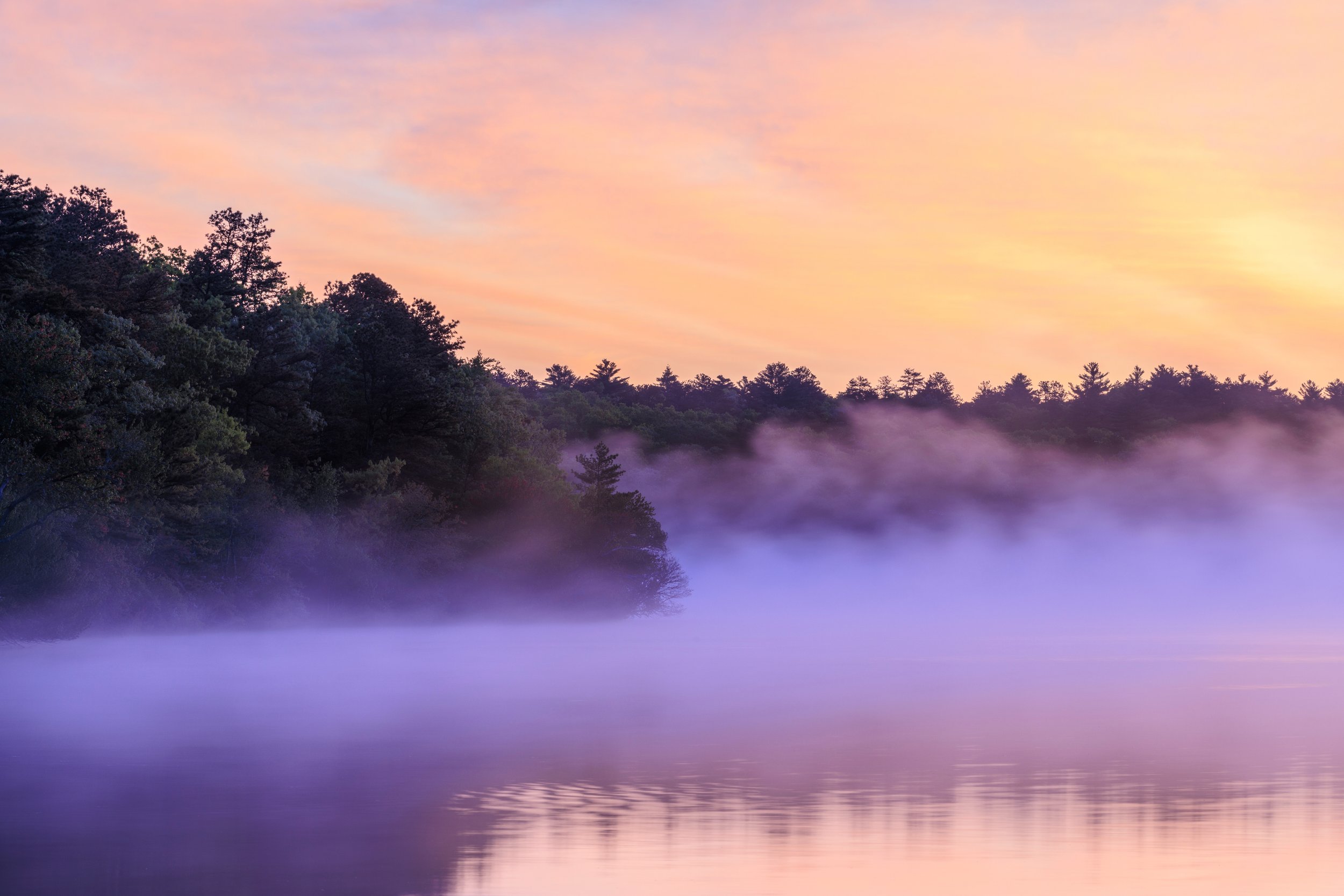Ribbon-cutting ceremony for Bernie Cooper Riverfront Park in Norwood.
By Thomas Patti, Communications Coordinator
No one knows a town better than its residents who dedicate their lives to public service. That’s why Wildlands Trust begins every conservation project by listening to local leaders and helping them achieve their community’s unique open space goals.
In Norwood, a fledgling 6.8-acre park proves what’s possible when passionate townspeople take initiative over the future of their natural spaces, and conservation professionals provide the expertise needed to turn residents' vision into a reality.
On May 9, a ribbon-cutting ceremony celebrated the dedication of Bernie Cooper Riverfront Park. Nestled between Balch Elementary School and the Neponset River in the environmental justice neighborhood of South Norwood, Bernie Cooper Riverfront Park will pack outsized social and environmental impact into its modest acreage. With wheelchair-accessible trails, an outdoor classroom, river overlooks, and green stormwater infrastructure, the park will give all Norwood residents a chance to connect with nature.
After the ceremony, project partners explored the park, despite torrential rain.
In 2018, the parcel was set to be converted to a parking area for a car dealership’s overflow inventory. With a shared vision for the land and its local people and wildlife, the community came together to chart a better way forward. Two years later, the Town of Norwood acquired the property using Community Preservation Act (CPA) funds. In accordance with CPA requirements, the Town granted a Conservation Restriction (CR) on the property to Wildlands Trust, permanently protecting it from development. The CR marks Wildlands’ first acquisition in Norwood.
A community design process ensued, led by the Town of Norwood, the Horsley Witten Group, Offshoots, Inc., and the Neponset River Watershed Association. Construction began in 2024. Awards from two state programs, the MassTrails Grant Program and the Land and Water Conservation Fund Grant Program, helped fund the design and construction.
The ribbon-cutting ceremony also honored the legacy of Bernie Cooper, who served the Town of Norwood for 49 years as assistant town manager and civil defense director. Cooper died in 2021.
“This park, like Bernie, represents growth, community, and the enduring power of nature,” said Patty Bailey, chair of the South Norwood Committee. "It's a living tribute to someone who dedicated their life to making our community a better place.”
“[My dad’s] tireless energy, the love for his town, and the deep sense of responsibility is reflected in the park,” added Amelia Noel, Cooper’s youngest daughter. “This space isn’t just a collection of trails and trees; it’s designed for everybody. ... It’s a place where neighbors will gather, where families will play, and where people will build the kind of community he believed so deeply in.”
Wildlands Trust is proud to play a small role in forever rooting Cooper’s legacy to the natural landscape of Norwood. We are grateful for the dedicated public servants in every town we serve, who make our work possible.
















